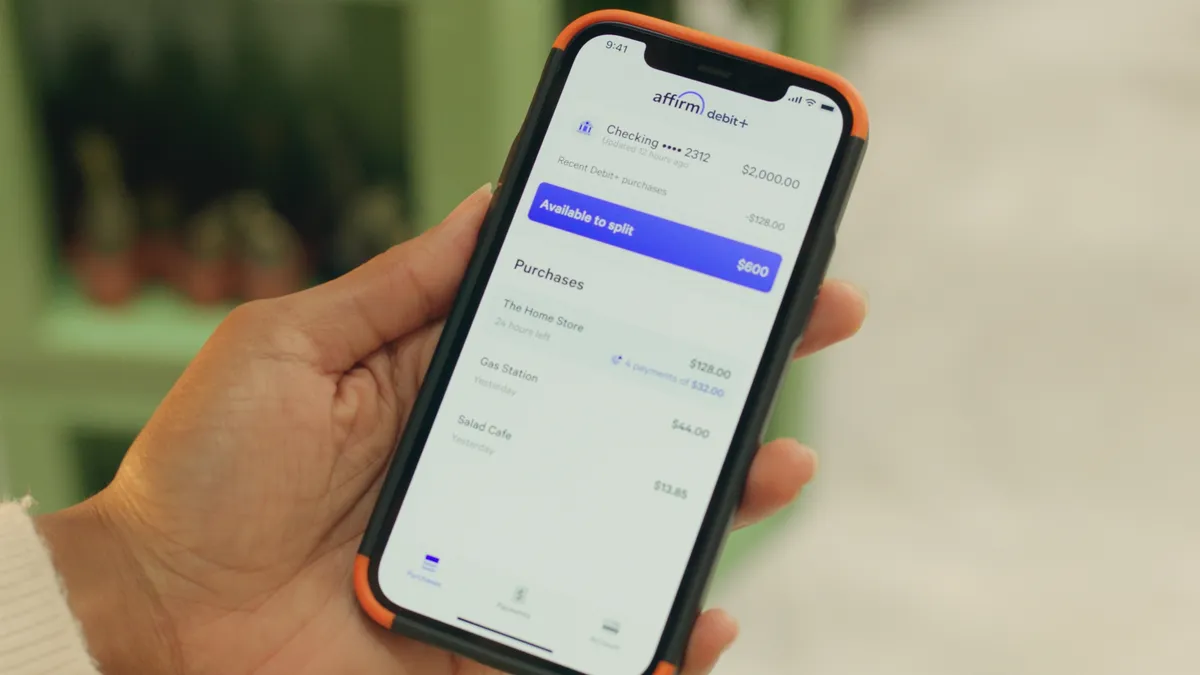Affirm’s Chief Financial Officer Michael Linford will become the company’s new chief operating officer, the buy now, pay later provider announced in an earnings call on Wednesday.
Taking his place as CFO will be Rob O’Hare, who currently serves as the San Francisco-based company’s senior vice president of finance.
"To build on the great momentum that we're having, to help us build and scale in the long term, we're evolving our leadership structure," Affirm CEO Max Levchin told analysts at the beginning of an earnings call on Wednesday.
Levchin said he expects O’Hare to take on the CFO role by the end of the fiscal year, and Linford will remain the chief financial officer until that time. O’Hare will report to Linford, he said.
Company executives also discussed recent developments affecting their industry, such as the Federal Reserve’s intent to lower interest rates in September and the tech giant Apple’s decision to drop its buy now, pay later product.
Lower interest rates mean the BNPL option will be available to more consumers, said Zane Keller, Affirm’s director of investor relations. Affirm charges interest rates based on a number of variables, including interest rates, a consumer’s credit score and their history with the company.
The company doesn’t offer buy now, pay later loans if it means charging an annual percentage rate of more than 36%, the figure set by the Military Lending Act of 2006, which was intended to protect service members from predatory lenders, Keller said.
“As the rates move writ large, we end up having to pass some of the costs through to consumers,” he said. “Practically, what this means is that at some point, someone who would have been approved will not be approved because the price is not the number that we want to [charge].”
“As the rates come down, the very first consumer side impact will be better approval rates,”
he said.
Shortly after the technology company Apple said in June that it would drop its buy now, pay later offering, it announced that it would instead add Affirm’s BNPL product to its digital wallet some time this year.
The move represented not a failure on Apple’s part, but an acknowledgment that Affirm has a plethora of experience in the space and is adept at convincing merchants to offer its product as an option, Levchin contended.
"We're coming to [merchants] and saying 'credit cards cost you a couple of points, you should give us major slices of your margin for transactions that will be really incremental, and we promise you the way we're going to make it work,’" Levchin said.
Affirm’s sales team is adept at showing merchants that BNPL will drive sales volume, he said, which was a new concept to Apple.
The company’s total revenue spiked for the fiscal fourth quarter that ended on June 30, according to a letter sent to shareholders.
The $659 million in revenue for the quarter was a 48% increase compared to the same period in 2023.
Still, Affirm posted a net loss of $45 million for the quarter. The loss was smaller than the $206 million loss reported for the same three months in 2023











